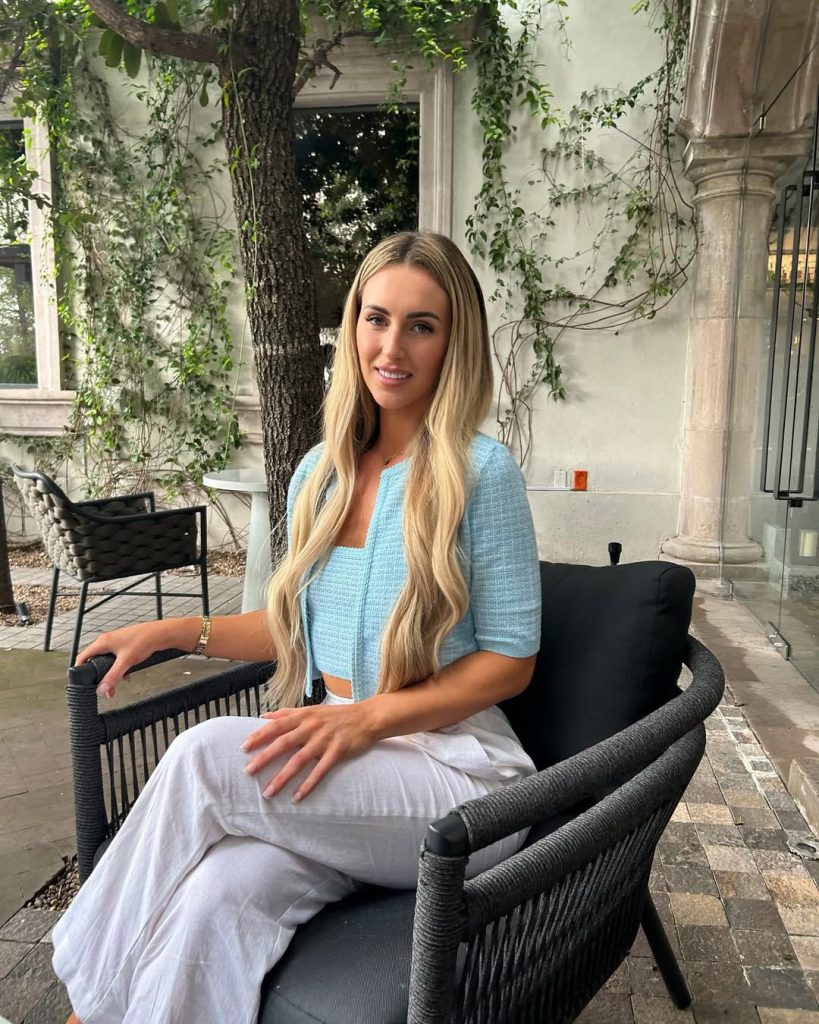Michaella McCollum Connolly, one half of the infamous “Peru Two” drug smuggling duo, has remained a figure of public fascination in the UK and Ireland for over a decade. Her story began in 2013, when she and fellow British national Melissa Reid were arrested at Lima Airport, Peru, with 11kg of cocaine worth £1.5 million hidden in their luggage. After pleading guilty, they were sentenced to six years and eight months in the notorious Ancon 2 prison. Since her release on parole in 2016, McCollum has worked to rebuild her life and reshape her public image, a journey that reflects themes of accountability, resilience, and transformation.
The Arrest and Conviction: The Peru Two Saga
At just 20 years old, McCollum and Reid were caught in a high-profile international drug smuggling case that garnered intense media coverage across the UK, Ireland, and Peru. Initially, both women claimed they were coerced by an armed gang to transport the drugs, a defence later abandoned when they admitted involvement in the plot. Their guilty pleas reportedly helped reduce their potential 15-year maximum sentences.
McCollum served her time in harsh conditions, sharing Ancon 2 prison with over 300 foreign inmates, many convicted of drug offences. During incarceration, she embarked on vocational training, including beauty therapy, and learned Spanish to navigate prison life better. Their story was documented in the 2015 Channel 4 documentary Brits Behind Bars: Cocaine Smugglers, which exposed the grim realities of drug mule operations.
Parole and Life After Prison
McCollum was granted early parole in March 2016 and eventually returned to Europe later that year. Her release was conditional, and she had to remain under supervision while continuing community work, including volunteering with HIV patients through the Eastern Catholic Church.
In the years following, McCollum has been open about the mistakes of her youth, expressing regret and reflecting on personal growth. She authored a memoir, You’ll Never See Daylight Again, recounting her experiences with drug trafficking and life behind bars. This candidness has helped shift public perception from a notorious criminal to a figure of redemption.
Recent Media Appearances and Public Role
As of 2025, Michaella McCollum has continued to engage with media platforms to share her story and offer cautionary advice to young people vulnerable to criminal exploitation. She featured in a BBC Three documentary series High: Confessions of an Ibiza Drug Mule, where she narrates her journey into crime and recovery with honesty and insight.
McCollum has also made appearances on shows such as Good Morning Britain, contributing to discussions on criminal justice, rehabilitation, and social responsibility. Her public presence balances transparency about past decisions and a forward-looking message on personal change.

Personal Milestones
Now in her late twenties, McCollum is also a mother of two boys, emphasizing the importance of family and stability in her new life. She graduated with a Bachelor of Business Administration in Business Management from the University of Ulster in 2023, highlighting her commitment to education and professional development.
She maintains a social media presence where she shares glimpses of her life, including travel and fashion, indicating a normalized life beyond her past. Yet, she remains conscious of her responsibility as a public figure with a complex history.
Public and Expert Perspectives
Public reaction to McCollum’s transformation is mixed, with some lauding her honesty and rehabilitation, while others remain critical of her past actions. UK criminal justice experts often cite her case in debates about the effectiveness of punishment versus rehabilitation within drug offences.
Her journey highlights broader social issues, including the exploitation of young women by drug trafficking networks and the need for preventive education. McCollum’s advocacy work encourages greater awareness of these risks.
Looking Forward: Michaella McCollum’s Next Steps
Michaella McCollum’s story continues to unfold as she balances personal growth with a public platform. Future plans reportedly include expanded advocacy, potential further education, and possibly business ventures leveraging her degree.
Her experience offers valuable lessons for UK audiences about the consequences of crime, the possibility of change, and societal support for reintegration. As she navigates continued media attention, McCollum remains a compelling figure in discussions about second chances.
Conclusion
From a headline-making drug smuggling conviction to a narrative of redemption, Michaella McCollum’s life encapsulates the challenging path from criminal notoriety to personal reinvention. Her openness about her past, combined with education and advocacy, contributes to important conversations on drug trafficking and rehabilitation in the UK.
For British readers, her story serves as both a warning and an example of resilience. Michaella McCollum’s journey reminds us of the complexities of human behaviour and the power of change.
Read more;Rhian Brewster



